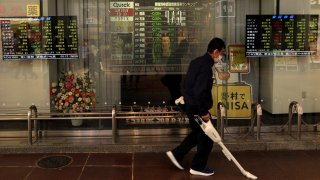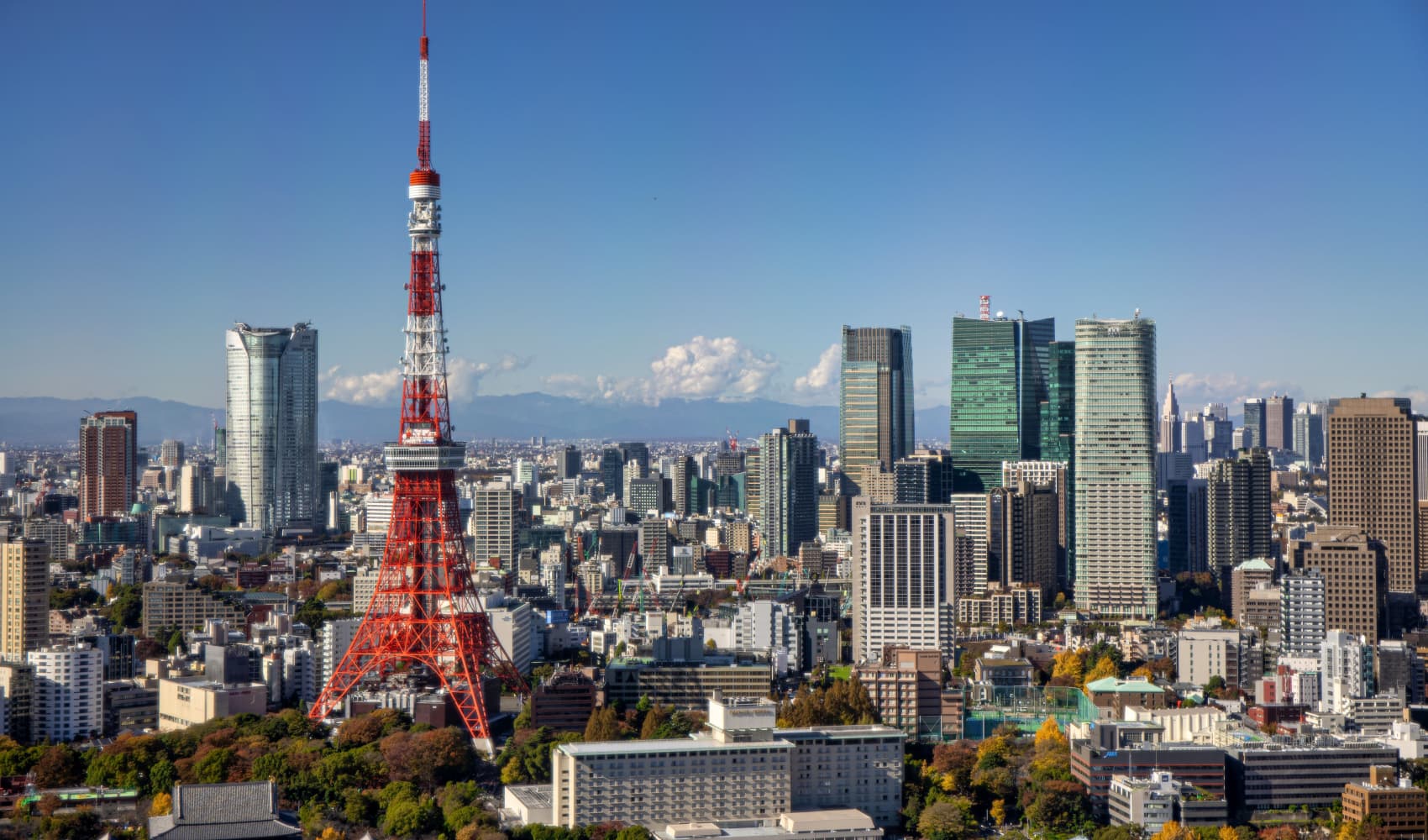
- Markets in India, Malaysia, the Philippines and Singapore are closed on Thursday due to holidays.
- Investors are awaiting tech giant Alibaba's first quarter and full fiscal year results that will be released on Thursday at 7:30 p.m. HK/SIN.
- U.S. stocks slumped during Wednesday's regular session as key inflation data showed higher-than-expected price pressures.
SINGAPORE — Major Asia-Pacific stock markets slumped on Thursday afternoon, as Wall Street fell sharply with inflation data triggering fears of a rate hike.
In Japan, the Nikkei 225 plummeted 2.49% to close at 27,448.01, while the Topix fell 1.54% to 1,849.04. Shares of Softbank Group dropped more than 7% after the company declined to extend its buyback program, according to Reuters.
Mainland Chinese markets also tumbled. The Shanghai composite dropped 0.96% to close at 3,429.54, and the Shenzhen component slipped about 1% to 13,917.65. Hong Kong's Hang Seng index fell 1.64% during afternoon trading.
We're making it easier for you to find stories that matter with our new newsletter — The 4Front. Sign up here and get news that is important for you to your inbox.
Investors will be looking to tech giant Alibaba's first-quarter and full fiscal year results that will be released on Thursday at 7:30 p.m. HK/SIN. Its Hong Kong-listed shares were down more than 2% in the afternoon, ahead of the earnings release.
Australia's S&P/ASX 200 fell 0.88% to close at 6,982.70 as major banking stocks traded mixed.
Over in South Korea, the Kospi dipped 1.25% to 3,122.11.
Money Report
MSCI's broadest index of Asia-Pacific shares outside Japan lost 1.34% in the afternoon.
Markets in India, Malaysia, Singapore and the Philippines were closed due to holidays.
U.S. stocks slumped overnight as key inflation data showed higher-than-expected price pressures.
The Dow fell 681 points, or 1.99% lower, to notch its single-worst session since January. The blue-chip index clinched its worst day since February on Tuesday. The S&P 500 lost 2.1%, its biggest one-day drop since February, while the tech-heavy Nasdaq Composite slid 2.6%.
The Labor Department reported that the prices American consumers pay for goods and services accelerated at their fastest pace since 2008 last month with the Consumer Price Index spiking 4.2% from a year ago.
"Market reaction to the CPI numbers was swift ... The fear for the equity market is the Fed lifting rates aggressively if there is some notion of the Fed being behind the curve as some like Summers have argued," Tapas Strickland of National Australia Bank wrote in a note on Thursday. He was referring to former U.S. Treasury Secretary Larry Summers.
"Moderate inflation and a slow moving Fed has been supportive to date, but inflation and a reactive Fed is negative for valuations," added Strickland, who is director of economics and markets at the bank.
The Fed has said it would tolerate inflation that rises above its 2% target and that will look at a range of inflation as acceptable. But the concern is that inflation could become too hot and the Fed would be forced to raise interest rates and keep raising them, a negative for stocks.
Currencies and oil
The U.S. dollar index, which tracks the greenback against a basket of its peers was at 90.726, up slightly from earlier.
The Japanese yen weakened, trading at 109.61 per dollar, compared to levels around 108 earlier this week. The Australian dollar slipped, trading at $0.7715 against the dollar, from around $0.78 reached in the previous session.
Oil prices declined on Thursday during Asian trading hours. U.S. crude futures fell 1.94% to $64.8 per barrel and global benchmark Brent dipped 1.75% to $68.11.
— CNBC's Patti Domm and Thomas Franck contributed to this report.






